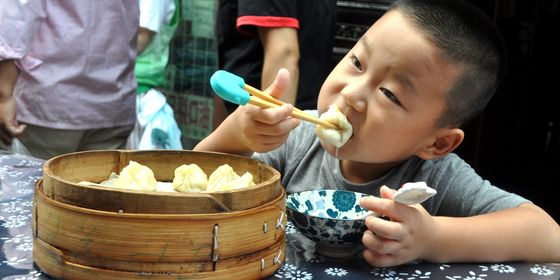Learn to speak like a native of Hubei’s capital with TWOC’s new regular column
For over a decade, The World of Chinese has been offering modern Chinese-language instruction from street talk to social phenomena to character tales. With 129 officially recognized dialects (方言) in the land, though, we have barely scratched the surface of everything there is to learn.
On select Fridays, TWOC will be presenting a basic lesson on speaking like a native of a certain region of China.
The usually US-centric Urban Dictionary humorously defines the dialect of Wuhan as “something half way between the Chinese spoken in old Jacky Chan movies, and the kind of German that Hitler spoke making propaganda speeches.”
Granted, the dialect or fangyan (方言) of the capital of Hubei province may be easier for Beijing-standard Mandarin speakers in northern China, compared with southern fangyan such as Cantonese or the notorious Wenzhou dialect.
Wuhanese (武汉话) belongs to a fangyan branch called Southwestern Mandarin, considered a buffer zone between Beijing Mandarin and the southern Min (Hokkien) and Yue (Cantonese) fangyan. There is both some mutual intelligibility with standard putonghua, which has an almost-identical sentence structure, and shared features with the Xiang (Hunan) and Gan (Jiangxi) dialect groups of the same branch. On the other hand, Beijing Mandarin speakers have no shot at recognizing some of unique Wuhanese particles and vocabulary.
The beauty of Wuhanese comes from its balanced melody. The pronunciation of the rising second tone is far more frequent than in putonghua, giving Wuhanese speakers the appearance of being permanently curious or amazed. Conversely, the downward slashing, harsh-sounding fourth tone—described as the most important tone in standard Chinese—is used less to the point it is almost absent from the dialect.
To achieving basic fluency in Wuhan fangyan, start by learning some particles and common words. Here are a few basic rules:
- A second-tone dai replace the particle zài (在), which indicates the present tense in Mandarin
- Gǎo (搞) displaces the Mandarin verb “to do”, zuò (做). Gǎo can also be heard in Mandarin but not as frequently as in Wuhanese
- Mosi (莫斯) replaces shenme (什么), or “what” in Mandarin
- Mandarin’s interrogative particle, ma (吗), is replaced with sa (撒)
Now that you’re warmed up, here are five sample Wuhanese phrases to learn, courtesy of a native speaker of the dialect:
- “F**k, you’re so stupid!”
Gēbǎnma nī youdian sáo ba! (个板马你有点勺吧!)
Best used among friends, this phrase is perfect if your Wuhanese buddy has done or said something worthy of scorn. Despite the popularity of this phrase among Wuhan’s youth, the word gebanma is considered a curse that more polished or elderly Wuhanese would rather not hear. On the other hand, sao (勺, stupid), with its long seesaw-like inflection, can be used anytime, anywhere.
2. Guys, what are y’all up to right now?
Huǒjié’e, dái gǎo mósi sā? (伙介,在搞莫斯撒?)
If Wuhan friends video call you on WeChat, this conversation starter is much better than the boring nǐ hǎo. Even better, why not approach a group of Wuhanese with this sentence? A good first impression is the best impression!
3. “You’re a right mess aren’t you?”
Xīnlǐ máo de sóu ba? (心里冒得嗽吧?)
If you don’t feel like calling your friend “f***ing stupid,” then why not be condescending instead? The phrase combines standard Mandarin’s xīnlǐ (心里 what the heart feels), with the Wuhanese, mao de sou (冒得嗽), which means confused or unclear.
4. “I don’t want to bicker with you”
Bu xiáng gēn ni guó jī (不想跟你裹筋)
This sentence is almost identical in putonghua, except for the last word, guo ji (裹筋), which is Wuhanese for bickering. As Hubei natives are stereotyped as notoriously argumentative, and prone to shouting in the street—they’re not compared to “nine-headed birds” for nothing—this sentence may just save you a thrashing one day.
5. “This time I lost big time”
Lē huí diāo dī dǎ lie (勒回掉滴大咧)
It’s all well and good to mock your friends—until misfortune befalls upon you. This expression is 100 percent Wuhanese, and shares no similarities with its standard Chinese translation, zhè cì chīle dà kuī (这次吃了大亏).












